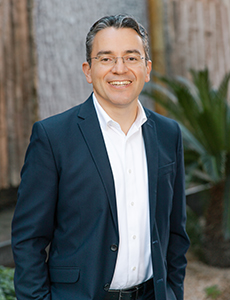The fear of becoming obsolete is a natural part of the human experience. We worry that as we age, we may lose our edge, becoming out of touch, out of shape, and unnecessary, relegated to the back of the line or even out the door.
And it isn’t even an unfounded fear. Every day we watch consumer products lose their novelty and expert functionality. From iPhones to Priuses, planned obsolescence is common and the fear is real.
Humans can plan and machines can be programmed to beat the obsolescence curve, but this takes proactive effort and advanced planning. Without thoughtful intervention, people may run the risk of becoming obsolete, in turn limiting professional opportunities and new roles. This risk is even greater now in a world of endless digital possibilities.
A session at the upcoming CPCU Society’s In2Leadership event will tackle this topic. Scheduled for March 19-20, 2024, in Phoenix, Arizona, the event will help attendees level-up their leadership skills. Courses taught by professors from Thunderbird School of Global Management at Arizona State University will encourage new ways of thinking and leading.
In2Leadership is open to any professional, regardless of CPCU or Society membership status.
How to Navigate FOBO in the Digital Age
“Navigating FOBO (Fear of Becoming Obsolete) in the Digital Age” will be taught by Dr. Marco Serrato, associate vice president, ASU Learning Enterprise and professor of practice at Thunderbird School of Global Management. Each course repeats several times over the two-day leadership event so attendees can schedule their learning to best meet their needs without missing any classes.
The world continues to change rapidly due to AI and other digital technologies. This challenges professionals in new ways as they work to stay on top of the evolving skills and knowledge needed to continue delivering value. It is no longer enough to simply be great at your job — every professional should strive to be better every day through learning and building new skills.

Dr. Marco Serrato, associate vice president, ASU Learning Enterprise and professor of practice at Thunderbird School of Global Management
“Learning, developing new skills, upskilling, reskilling, gaining new knowledge is no longer a goal, something to achieve on our part, but more something that we do in a continuous manner throughout our professional and personal lives,” said Dr. Serrato.
He explained the model in the past was students would attend a four-year undergraduate program and expect the knowledge they learned would be useful for the next thirty-plus years of a career. But the pace of change is such now that humans need to continuously learn and adopt new skills instead of relying on once-learned information.
Dr. Serrato explained, “The rate of change is greater than the rate of human adaptation overall and that is creating a gap at a different level depending on different roles, functions, and industries, but that is happening everywhere. And the question that arises is what can I do as an individual, as a leader, and as an organization?”
Participants in the course will learn answers to those questions and will have an opportunity to discuss their thoughts and challenges in the workshop setting. Dr. Serrato will provide tangible takeaways for participants to bring back to their teams and apply immediately. He provided some tips now that he will elaborate on in the session.
“The first thing we must do is understand that the rate of change is not going to decrease but exactly the opposite. It will continue increasing because that is just the way technology is.”
Next, all professionals should focus on keeping their skills and talents fresh. It doesn’t matter if an individual is a recent college graduate or a long-time employee, the playing field is leveled when new technology is introduced, and everyone needs to learn how to use it.
Managing FOBO as a Strategic Asset
Dr. Serrato explained leaders need to consider three aspects of talent management — talent attraction, talent development and talent retention. This means bringing the right individuals to the organization, finding creative ways to help them develop their unique talents, and retaining them when the norm has become changing jobs every couple of years.
For leaders, the people management side is a significant part of their job. But there is more to it, as Dr. Serrato explained: “It’s also not just about the people, but about the systems, the processes, and the culture you need to nurture within your organization. That’s a key piece from a leadership perspective.
“And to be able to be upskilling and reskilling under the current trends taking place out there and do that in a way that ideally creates this sense of belonging, a sense of pride while being part of your organization because, again, talent retention is a challenge.”
A significant part of the course will address the “how” behind making FOBO a strategic asset. How can leaders and professionals manage their own fears while helping others around them also succeed? Dr. Serrato pointed out an important part of the discussion will be around how to measure this success to know if programs are working and people are improving the right skills and talents.
Participants will leave the course understanding how to measure success and ways to channel their fears of becoming obsolete into actionable steps they can take to avoid their own obsolescence.
Register for In2Leadership Today
Registration for In2Leadership is open now to all professionals — you do not need to be a CPCU or member of the CPCU Society to attend. Individuals registering before February 1 can take advantage of the early bird rate. Face your fear of becoming obsolete and learn how to turn this fear into a strategic asset at In2Leadership. Register today. &
The post The Clock Is Ticking: Overcoming FOBO in the Rapidly Changing Digital World appeared first on Risk & Insurance.





